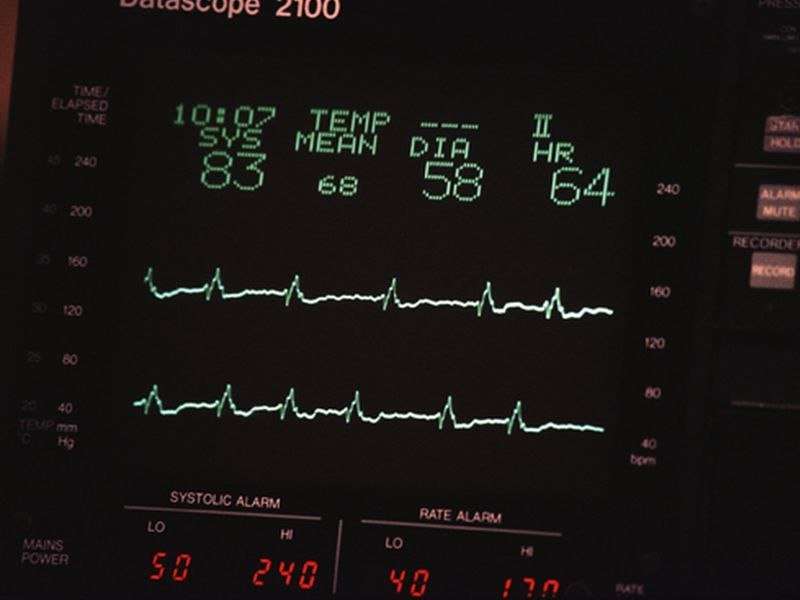Most ICU patient alarms not clinically accurate or relevant

(HealthDay)—Most intensive care unit (ICU) patient monitoring alarms are not clinically accurate or relevant, according to a review published in the January issue of the American Journal of Critical Care.
Halley Ruppel, R.N., from Yale University in West Haven, Conn., and colleagues systematically reviewed the literature to examine approaches to measure accuracy or clinical relevance of physiological monitor alarms in ICUs and to compare the proportions of inaccurate and clinically irrelevant alarms.
The researchers identified 12 relevant studies. Alarms were evaluated retrospectively, rather than in real time, by obtaining alarm data and parameter waveforms in the most rigorous studies. Recent studies determined that more than half of arrhythmia alarms were inaccurate. However, to determine the clinical relevance of the alarms, contextual data were needed. While there were high proportions of clinically irrelevant alarms, definitions of clinically irrelevant alarms often included inaccurate alarms.
"Clinical interventions should focus on reducing clinically irrelevant alarms, with careful consideration of how clinical relevance is defined and measured," the authors write.
Copyright © 2018 HealthDay. All rights reserved.















